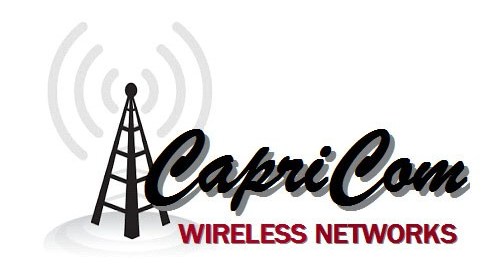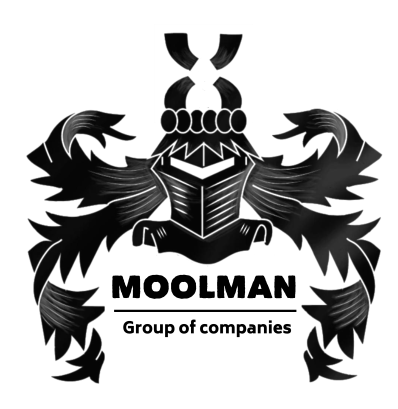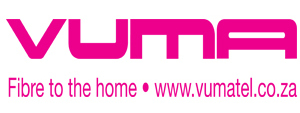

The "CAPS" syllabus refers to the Curriculum and Assessment Policy Statement used in South African education.
CAPS is the national curriculum for schools in South Africa, and it outlines the content and standards for teaching and assessment in various subjects and grades. It was introduced as part of a broader effort to reform and improve the country's education system.
Here are key points about the CAPS syllabus:
Curriculum Framework:
CAPS provides a comprehensive framework for what students should learn in various subjects and at different grade levels, from preschool through Grade 12. It covers subjects such as mathematics, science, language, social studies, and more.
Alignment with National Goals:
The CAPS curriculum is designed to align with the national goals of South Africa, including addressing issues of equity, inclusivity, and quality education. It aims to provide a more uniform and standardized education experience across the country.
Assessment and Examination Guidelines:
CAPS includes guidelines for assessment and examinations. This includes the types of assessments to be used, how they should be conducted, and how learners will be evaluated and graded.
Content and Learning Outcomes:
CAPS outlines the specific content that should be taught in each subject at each grade level. It also sets clear learning outcomes or objectives for each grade, which educators are expected to help students achieve.
Continuous Improvement:
CAPS is periodically reviewed and revised to ensure that it remains up to date and effective in meeting the educational needs of South African students.
Differentiation:
The curriculum takes into account the diverse needs of learners, including those with special needs, and provides guidance for differentiation to accommodate various learning styles and abilities.
It's important to note that CAPS is specific to the South African education system and may not be directly applicable to other educational systems in different countries. CAPS aims to provide a standardized and comprehensive curriculum to improve the quality of education in South Africa and to ensure that all learners have access to a well-defined and rigorous educational experience.
SACAI stands for the "South African Comprehensive Assessment Institute." It is an educational assessment and examination body in South Africa. SACAI is an independent organization that is not affiliated with the South African Department of Education, and it provides assessment and examination services for various educational institutions in the country. under MUALUSI.
Here are key points about SACAI:
Independent Examination Body:
SACAI is an independent entity responsible for developing and administering assessments and examinations. It is not part of the South African government's Department of Education.
Assessment and Examinations:
SACAI primarily focuses on creating and conducting assessments and examinations for learners in various educational settings, including schools, colleges, and other institutions.
Customized Assessment Services:
SACAI works with educational institutions to develop customized assessment solutions tailored to their specific needs. This flexibility allows schools and institutions to adapt assessments to their curriculum and teaching methods.
Alternative Assessment Methods:
SACAI offers alternative assessment methods beyond traditional exams, including practical assessments, coursework assessments, and other forms of evaluation.
Regulatory Compliance:
While SACAI is an independent entity, it operates within the regulatory framework of the South African education system and ensures that its assessments meet the country's educational standards and requirements.
Inclusivity:
SACAI is known for its inclusive approach, catering to a diverse range of learners, including those with special educational needs and those who may require accommodations during assessments.
Certification:
Learners who successfully complete assessments and examinations through SACAI can receive certifications, which may be recognized by educational institutions and employers.
Continual Improvement:
SACAI aims to continually improve the quality of its assessments and examination services to meet the evolving needs of South African education.
SACAI plays a significant role in the South African education system by offering assessment and examination services that provide flexibility and customization for educational institutions. It allows schools and institutions to tailor their assessment methods to better suit their educational programs while maintaining compliance with national education standards. This approach can help accommodate diverse learning needs and styles within the South African context.
Umalusi is a South African statutory body responsible for the quality assurance of education and training in the country. It is an independent organization that plays a crucial role in monitoring and regulating the quality of education and qualifications in South Africa.
Here are key points about Umalusi:
Quality Assurance:
Umalusi's primary mandate is to ensure and promote the quality of education and training in South Africa. This includes quality assurance for both basic education and further education and training.
Standard Setting:
Umalusi is responsible for setting and maintaining standards for qualifications, assessments, and examinations in South Africa. This includes ensuring that assessments are fair, valid, and reliable.
Certification:
Umalusi plays a role in the certification of qualifications, especially at the senior certificate level, which is equivalent to a high school diploma. It verifies and approves qualifications awarded by various institutions.
Accreditation:
Umalusi is involved in accrediting educational institutions and assessment bodies, ensuring that they meet the necessary quality standards.
Monitoring and Evaluation:
The organization conducts regular monitoring and evaluation of education and training providers to ensure they comply with quality standards. This includes conducting external moderation of assessments.
Research and Development:
Umalusi engages in research and development activities to continually improve the quality of education and assessment in South Africa.
Independence:
Umalusi is independent of the South African government, which helps ensure impartiality and credibility in its quality assurance and standard-setting functions.
Public Reporting:
Umalusi publicly reports on the quality and integrity of education and qualifications in South Africa, providing information and feedback to the public, educational institutions, and government authorities.
Umalusi's role is critical in ensuring that the qualifications and assessments offered in South Africa meet international standards and that learners receive a quality education. It contributes to the credibility and comparability of South African qualifications on a national and global scale.
Grade 4 - 6
Grade 4 Subjects:
- Home Language (e.g., English, Afrikaans, etc.)
- First Additional Language (e.g., a second language, such as Afrikaans or isiZulu)
- Mathematics (MA)
- Natural Sciences & Technology (NS&T)
- Economic and Management Sciences (EMS) (Iintroduction)
- Social Sciences (which include History and Geography) (SS)
- Life Skills (LS)
- Creative Arts (which include Visual Arts, Drama, Music) (ART)
Grade 5 Subjects:
- Home Language (e.g., English, Afrikaans, etc.)
- First Additional Language (e.g., a second language, such as Afrikaans or isiZulu)
- Mathematics (MA)
- Natural Sciences & Technology (NS&T)
- Economic and Management Sciences (EMS)
- Social Sciences (which include History and Geography) (SS)
- Life Skills (LS)
-
Creative Arts (which include Visual Arts, Drama, Music) (ART)
Grade 6 Subjects:
- Home Language (e.g., English, Afrikaans, etc.) (HL / HT)
- First Additional Language (e.g., a second language, such as Afrikaans or isiZulu) (FAL / EAT)
- Mathematics (MA)
- Natural Sciences & Technology (NS&T)
- Economic and Management Sciences (EMS)
- Social Sciences (which include History and Geography) (SS)
- Life Skills (LS)
-
Creative Arts (which include Visual Arts, Drama, Music) (ART)
Grade 7 - 9
📚 English Home Language and FAL:
Develop strong communication skills, explore literature, and nurture your love for language.
🔢 Mathematics:
Unravel the mysteries of numbers, patterns, and logical thinking.
💡 Economic and Management Sciences:
Understand the principles of economics and management.
🧪 Natural Sciences:
Dive into the wonders of the natural world, from biology to chemistry to physics.
🌍 Social Sciences:
Travel through time and geography, uncovering the stories of our world.
🖼️ Arts and Culture:
Express your creativity and create masterpieces through various artistic mediums.
🌿 Life Orientation:
Cultivate essential life skills, ethics, and a healthy lifestyle.
🇿🇦 Afrikaans Huistaal and EAT:
Immerse in the rich culture and language of South Africa.
💡 Technology:
Embrace the digital age and harness the power of technology.
Grade 10 - 12
Almost ready, coming soon




